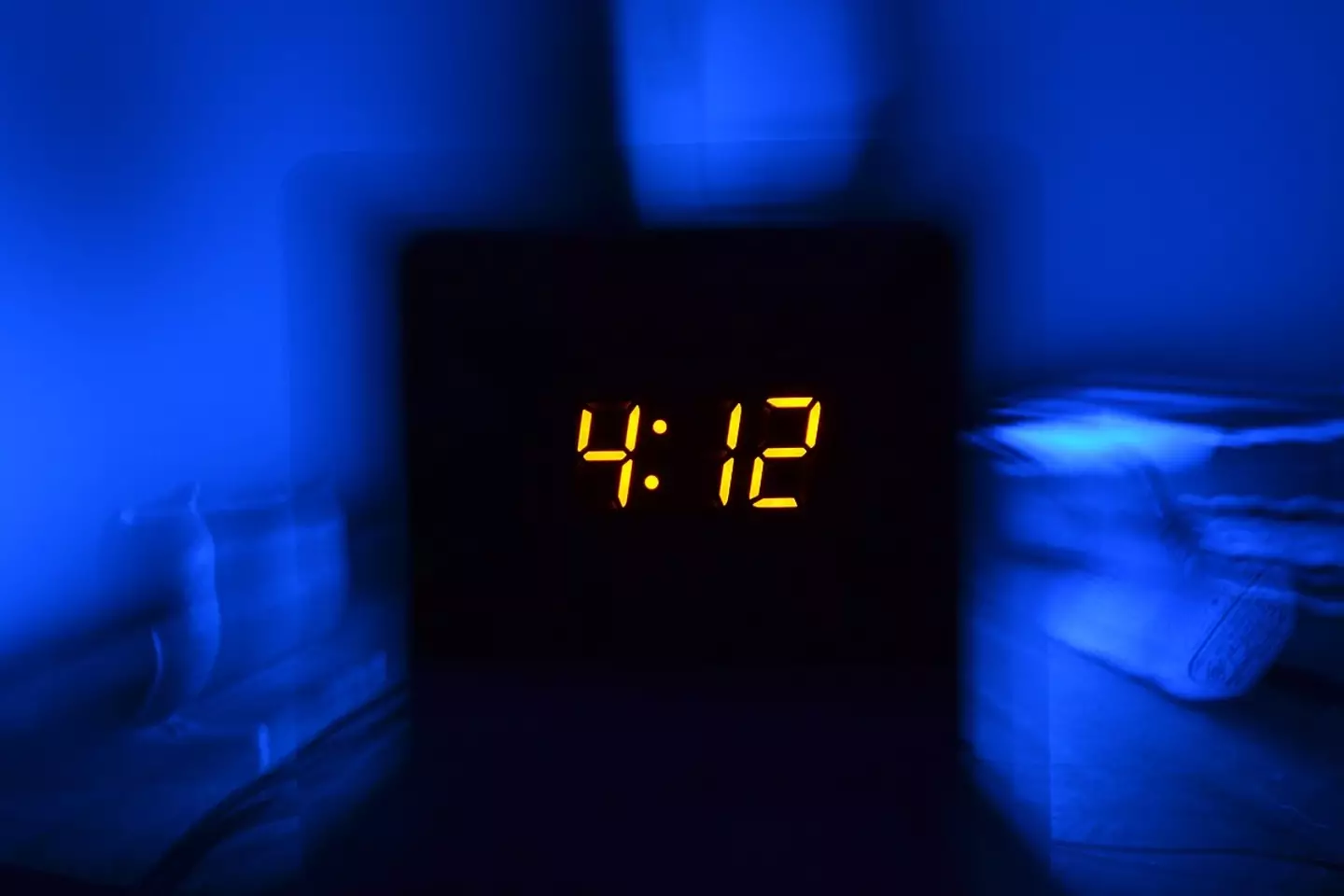So why do we hear a constant rhythmic thudding in our pillows every night?Have you ever jumped into bed after a long day, rolled onto your side and noticed rhythmic thudding noise as you’re trying to drift off?
Well you wouldn’t be the only one – but why does this noise happen and is it anything to be concerned about?

Have you ever been unsettled by the sound while trying to fall asleep? (Getty Stock Image)
Why can you hear your heartbeat when lying on your side?
The first thing to note about hearing your pulse while lying on your side is that it’s totally normal.
Explaining the phenomena in a recent TikTok video is US surgeon Dr Anthony Youn, who likened the noise to the bass being turned up ‘too loud’ in your pillow, he said: “If, every once in a while, you’re lying on your side and you hear your heart beating, it’s most likely your carotid artery basically sitting against your pillow.”
READ MORE:
REASONS YOU CAN WAKE UP WITH HEART PALPITATIONS IN THE NIGHT AND HOW TO TELL IF THEY’RE MORE SERIOUS
MILITARY SLEEP METHOD CAN SEND PEOPLE TO SLEEP IN ‘TWO MINUTES’
The carotid arteries are one of the heart’s major blood vessels which sit on either side of our neck and pass by the inside of our ears. They are responsible for supplying blood to our head, face and neck.
When you lie on your side the carotid artery is basically against your pillow, meaning the thudding noise is just your body doing its job in keeping you alive and well.
So completely normal and nothing to worry about, right?

Constantly hearing a whooshing noise in the ear could be a sign of pulsatile tinnitus (Getty Stock Image)
Should I be concerned about hearing my heartbeat in my ears?
Dr Youn goes on to explain that being able to hear your heartbeat all the time while lying on your side or when standing up could be a sign of a condition called pulsatile tinnitus.
According to Tinnitus UK, pulsatile tinnitus is a when a ‘rhythmical noise’ can be heard in either the head, ears or both regions which typically matches your heartbeat.
Dr Youn adds that pulsatile tinnitus is ‘usually benign, there are some potentially concerning causes, so it’s best to see your doctor’.
The charity states that pulsatile tinnitus can be caused by a number of things, typically a change of blood flow in the vessels surrounding the ears. This can be caused by anything from tumours of the head and neck, elevated blood pressure as well as pregnancy, anaemia and hyperthyroidism.
Harvard Health states that ‘most of the time, pulsatile tinnitus is nothing to worry about’. However if you find yourself particularly concerned about your symptoms there’s nothing wrong in getting checked out by your GP.Featured Image Credit: Getty Stock Images

Brenna Cooper
Advert
Advert
Advert

Published 10:22 6 Dec 2024 GMT
Doctor reveals the one thing you should never do if you wake up in the middle of the night
If you want a good night’s sleep, don’t make this common mistake

There’s nothing worse than waking up in the middle of the night and not being able to get back to sleep.
You find yourself tossing and turning desperately to fall back into slumber.
But the more frustrated you get, the harder getting some shut-eye becomes.
People all have their own little hacks for heading back to the land of nod, whether it be counting sheep or reading a book.

Pixabay)
But one sleep expert has spoken out about the thing you must never do if you want a chance at getting some rest.
Dr Biquan Luo, CEO of LumosTech, spoke to The New York Post about the biggest mistake a weary-eyed person can do in the late hours.
And yes, it involves that pesky thing we’re all addicted to – our phones.
Dr Luo said: “Checking the time can increase stress and make it harder to sleep. Additionally, if you check the time on your phone, the contents of the phone may be too stimulating, which further prevents you from relaxing and falling asleep.”
We’ve all been there – there’s nothing more stressful than realizing you only have a few precious hours to catch up on sleep.

Wikimedia Commons/Benjaman Watson)
That 6am alarm is looming and seconds are ticking by – and you’re still awake!
And if you catch a glimpse of a late night message from an ex or a friend, forget about it.
You’re drawn back into a conversation you really shouldn’t be having at 3am, and you can kiss a good night’s kip goodbye.
The blue light from smartphones can also wreck havoc on our sleep patterns. There’s a reason why most sleeping experts advise that they are put away before hitting the hay.
So, what should we do if we find ourselves with open eyes at 2am?
The first bit of advice is to stay put and try to relax, in order to test whether you can get back to sleep naturally.
If that doesn’t work after 10 or 15 minutes, it’s time to get out of bed.
Head off to a quiet part of the house – like a sofa – and try a quiet activity like reading.

Wikimedia Commons/Rawpixel)
This should soon having yawning and heading back to the bedroom in no time.
If you find that sleeplessness is a constant woe for you, it might be time to pay your doctor a visit. It’s estimated that one in three people in the UK struggle with getting to sleep.